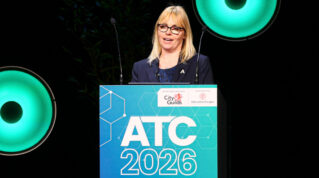The overall achievement rate for apprenticeships in 2019/20 has fallen to 57.5 per cent – 6.7 percentage points lower than what the government had originally calculated, revised data published today has revealed.
And the drop-out rate for that year on the new-style standards has increased by 13.6 percentage points from 39.8 per cent to 53.4 per cent.
Original figures for 2019/20 previously published by the Department for Education had stated the overall achievement rate sat at 64.2 per cent, with the new-style standards achieving 58.7 per cent.
The DfE was forced to remove last year’s published achievement rates in February due to an “error”.
Revised figures have been published today and show and overall achievement rate of 57.5 per cent.
The revised achievement rate for standards in 2019/20 is 45.2 per cent, while the rate the old-style frameworks is 68.1 per cent.
Retention for all apprenticeships continues to be an issue: the rate fell from 66.1 per cent in 2018/19 to 58.7 per cent in 2019/20.
The retention rate for standards was 60.2 per cent under the original calculations – meaning that 39.8 per cent of apprentices dropped out before taking their end-point assessment.
But under the reviesed figures, the retention figure has dropped by 13.6 percentage points to 46.6 per cent – meaning there was a 53.4 per cent drop out rate.
New achievement rate data for 2020/21 was also published today (click here for full story).
















can this all be blamed on covid or the fact the apprenticeship standard is not as standard as they have us believe. Where smaller company that don’t fit the standard but do cover the other aspects to a very high standard, are exclude from employing an apprentice because they as a company do not cover areas of the criteria we have a few who don’t cover certain areas. so will never get through the gateway process with the old frame work which was flexible. So proving not all firms are standard but many have apprentices every two or three years and may not want or have to send an employee to be able to get the work base evidence,